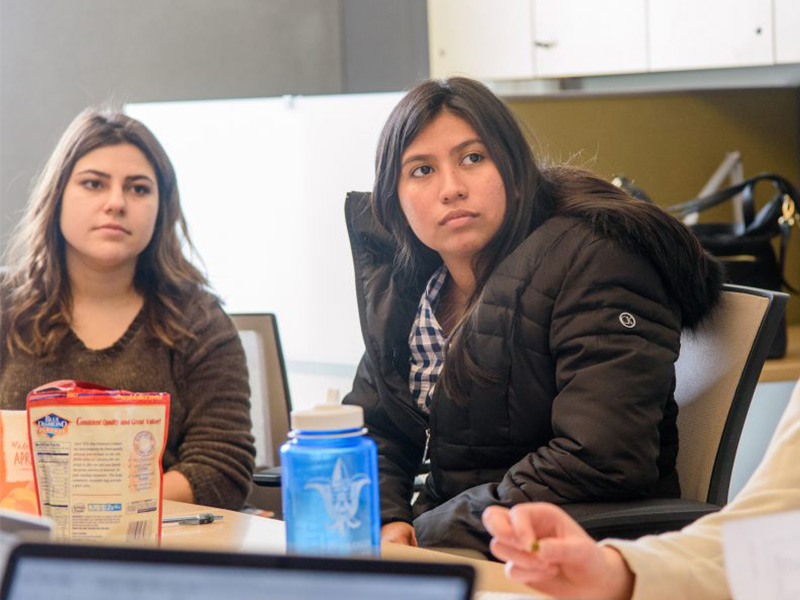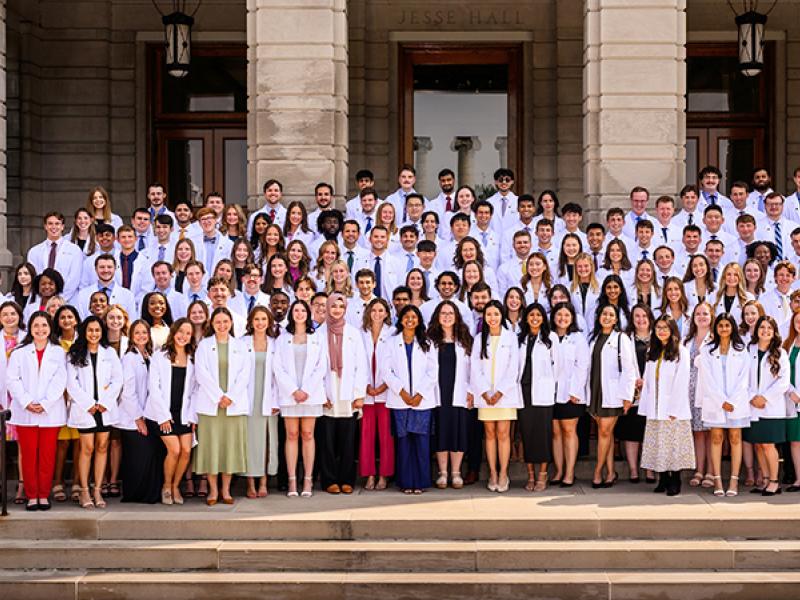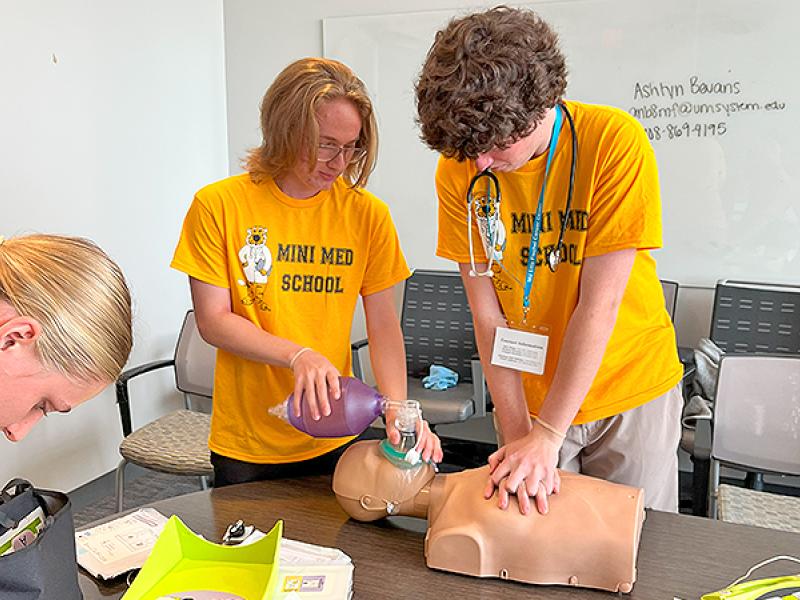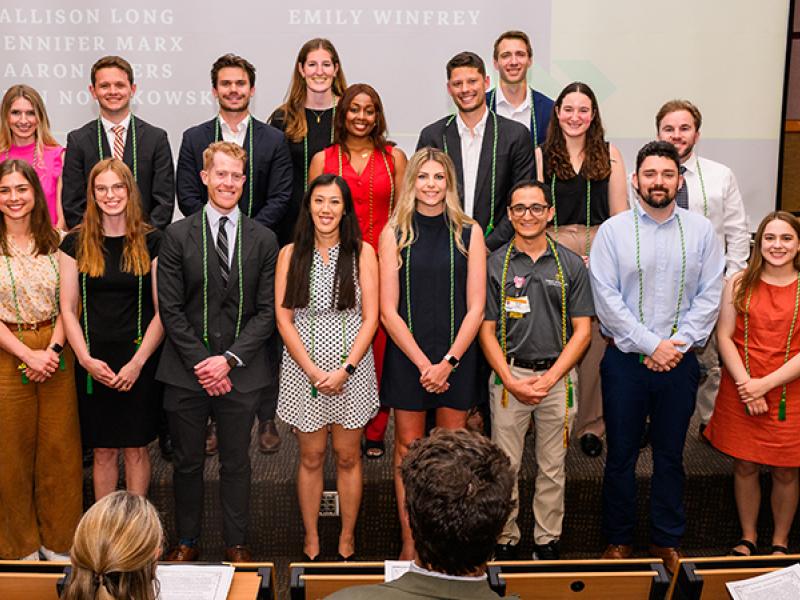
A medical student group focused on global health hosted an exchange student from Nicaragua Jan. 15-24. The student group, Students Interested in Global Health for Tomorrow (SIGHT), prepares future physicians for careers that incorporate the best practices of effective global health care.
This year, Farah Julissa Meza Calix, a fourth-year-student at Universidad Nacional Autonoma de Nicaragua-Leon (UNAN-Leon), spent time shadowing current medical students, participating in patient-based learning and touring the MU campus surrounding area.
The SIGHT exchange program focuses on cross-cultural understanding and learning. Each January, up to two Nicaraguan medical students travel to the MU medical school through the program. Each May, eight first-year MU medical students travel to UNAN-Leon to learn about health care and medical education in Nicaragua. This is the third year Nicaraguan students have traveled to MU and the sixth year MU students have visited Nicaragua.
“The strength of the SIGHT Exchange Program lies in the reciprocity of benefit for students from both schools,” said Jen Brockmeyer, a third-year medical student and co-president of SIGHT. “Students from UNAN-Leon are able to learn about and experience the American health care system and our medical education process firsthand. They learn to compare our system to their own and discover the benefits and challenges of each, ultimately to make them more well-rounded, globally minded physicians. Equally, MU students benefit by being exposed to another health care system and use that information to gain perspective on our own system. The connections made during the exchange between UNAN-Leon students and MU medical students, residents, and faculty are mutually beneficial; the program allows participants to gain perspective and respect for other cultures, health care systems, and health care professionals.”





